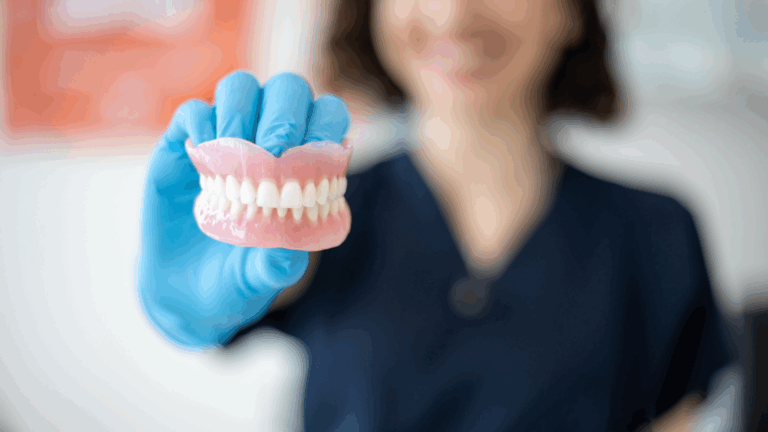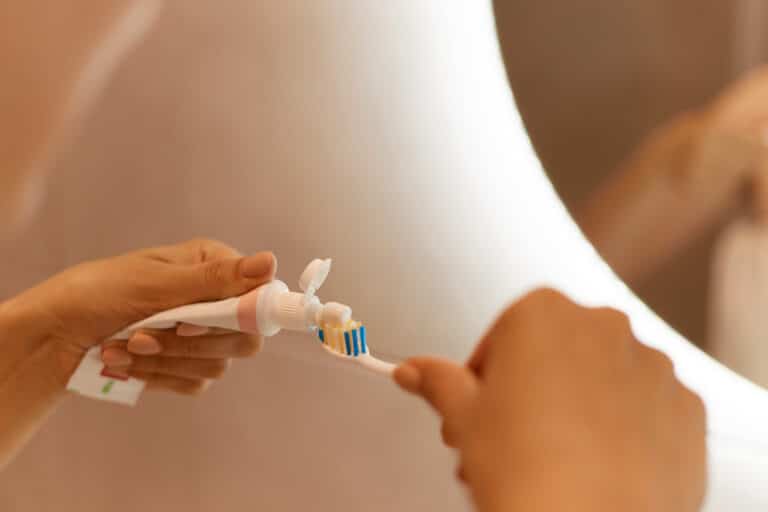When it comes to oral health, it’s not just about having a sparkling smile; it’s also about maintaining the overall well-being of your gums. Receding gums, a common dental issue, can be a cause for concern if left untreated. In this comprehensive guide, we’ll delve into what receding gums are, their symptoms, causes, and the importance of seeking treatment to prevent further damage. We’ll also explore professional treatments, home remedies, and lifestyle changes that can help, along with addressing frequently asked questions about gum recession.
What are receding gums?
Receding gums, also known as gingival recession, occur when the gum tissue that surrounds your teeth begins to pull back or wear away. As a result, more of your tooth’s surface becomes exposed, including the sensitive root. This can lead to a range of dental issues, as well as aesthetic concerns.
What are some signs or symptoms of receding gums?
Identifying receding gums is essential for prompt intervention. Here are some common signs or symptoms to look out for:
- Tooth sensitivity: Increased sensitivity to hot and cold temperatures can be a sign of receding gums, as the exposed tooth roots are more vulnerable to these sensations.
- Longer teeth: If you notice that your teeth appear longer than they used to, it could be a visual indicator of gum recession.
- Gum tissue pulling back: Observe your gum line. If you notice your gums receding, exposing more of your teeth, it’s a clear sign of gingival recession.
- Pockets between teeth and gums: Spaces or pockets forming between your teeth and gums may indicate gum recession and should be promptly addressed.
What are some common causes of receding gums?
Understanding the root causes of receding gums is crucial for prevention and treatment. Several factors can contribute to this condition:
- Periodontal disease: Gum disease, such as gingivitis and periodontitis, is a leading cause of gum recession. Infections and inflammation can damage the gum tissue.
- Aggressive brushing: Overly vigorous brushing or using a toothbrush with hard bristles can wear down the gum-line over time.
- Poor oral hygiene: Inadequate brushing and flossing can lead to the accumulation of plaque, which can contribute to gum recession.
- Genetics: Genetics can indeed play a role in gum recession. If your parents or grandparents had issues with receding gums, you may be more predisposed to the condition. However, even with a genetic predisposition, maintaining good oral hygiene and lifestyle practices can help mitigate the risk.
- Tobacco use: Cigarettes contain harmful chemicals, such as tar and nicotine, which can irritate and damage gum tissues. This irritation can lead to gum recession over time.
- Hormonal changes: Hormonal shifts in women, such as during pregnancy, menopause, or the menstrual cycle, can affect gum health.
- Teeth grinding: Habitual teeth grinding, known as bruxism, can place excessive pressure on teeth and gums, leading to recession.
- Misaligned teeth: An improper bite or misaligned teeth can cause uneven pressure on the gums, contributing to recession.
How can receding gums affect your oral health?
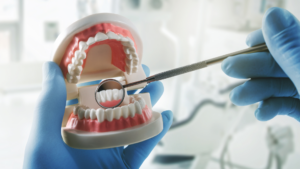
Receding gums can have a significant impact on your oral health, and understanding these consequences is crucial. Here’s how gum recession can affect you:
- Increased tooth sensitivity: Exposed tooth roots can make your teeth more sensitive to hot, cold, and sweet stimuli.
- Tooth decay: The roots of your teeth are not as well protected as the enamel, making them more susceptible to decay.
- Gum disease progression: Receding gums can exacerbate existing gum disease, leading to more severe periodontal issues.
- Cosmetic concerns: The visual aspect of receding gums, such as longer teeth, can affect your smile and confidence.
- Tooth mobility: In severe cases, gum recession can lead to tooth mobility and potential tooth loss.
Is receding gum reversible?
Receding gum, also known as gingival recession, can often be managed and treated, but its reversibility depends on the underlying causes and the severity of the condition.
In some cases, if gum recession is caused by factors like aggressive brushing, poor oral hygiene, or misaligned teeth, it can be stopped and even partially reversed through proper dental care and lifestyle changes. Using a soft-bristle toothbrush, practising gentle brushing, maintaining excellent oral hygiene, and addressing contributing factors can help prevent further recession.
However, in more severe cases, especially when gum recession is due to advanced periodontal disease, genetics, or other underlying health issues, it may not be fully reversible. In such cases, professional treatments, including gum grafting, laser therapy, or minimally invasive techniques, can help manage the condition, cover exposed tooth roots, and improve the appearance of the gums.
Early detection and prompt treatment are crucial for preventing further progression of gum recession and preserving your oral health. If you suspect or have been diagnosed with receding gums, it’s essential to consult with a dental professional who can assess your specific condition and recommend the most appropriate treatment options.
What are some common dental treatments for receding gums at early stages?
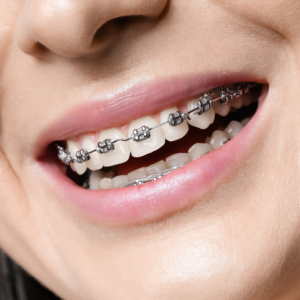
Seeking treatment for receding gums is essential to prevent further damage and address the root causes of the issue. Professional intervention can not only stop the recession but also improve your overall oral health. Here are some common treatments for receding gums at early stages:
- Scaling and Root Planing (Deep Cleaning): This is a non-surgical procedure performed by a dental hygienist or periodontist. It involves removing plaque and tartar from the teeth and their roots, helping to prevent further gum recession.
- Orthodontic Treatment: Sometimes, receding gums may be a result of misaligned teeth or a bad bite. Correcting these issues through orthodontic treatment can help reduce or prevent further gum recession.
It’s crucial to consult with a dentist or periodontist to determine the most appropriate treatment for your specific situation. Early intervention is essential to prevent further gum recession and maintain overall oral health.
What are some dental treatments that can address severe gum recession?
Yes, for severe cases of gum recession, gum grafting and the pinhole surgical technique are among the procedures that can effectively address advanced cases of receding gums.
- Gum Grafting: In cases of significant gum recession, a periodontist may perform a gum graft. This procedure involves taking tissue from another part of the mouth (typically the palate) or using donor tissue to cover the exposed root surfaces and promote gum tissue regeneration.
- Pinhole Surgical Technique (PST): PST is a less invasive alternative to traditional gum grafting. It involves making small holes in the gums and adjusting the existing gum tissue to cover the exposed root surfaces.
Your dentist will determine the most appropriate treatment based on your specific condition.
Are there any effective home remedies to prevent or manage receding gums?
While professional treatment is often necessary for severe cases of gum recession, some home remedies and practices can help manage and prevent further recession. These include:
- Oral hygiene improvement: Maintaining good oral hygiene through regular brushing, flossing, and mouthwash use can prevent the progression of gum recession.
- Gentle brushing: Switch to a soft-bristle toothbrush and practise gentle brushing to avoid further gum irritation.
- Desensitising toothpaste: Special toothpaste can help alleviate tooth sensitivity.
- Oil pulling: Using natural oils like coconut or sesame oil can promote gum health.
- Aloe vera gel: Applying aloe vera gel to the affected area can soothe gum tissue.
- Green tea: Consuming green tea with its anti-inflammatory properties can be beneficial for gum health.
How can lifestyle changes help prevent receding gums?
Adopting a few lifestyle changes can go a long way in preventing receding gums and maintaining optimal oral health. Here are some practical steps you can take:
- Regular dental check-ups: Scheduling regular dental appointments allows your dentist to monitor your gum health and address any issues early on.
- Mouthguards: If you grind your teeth at night, wearing a mouthguard can help protect your gums and teeth.
- Hydration: Staying well-hydrated helps maintain saliva production, which is essential for oral health.
- Balanced diet: A diet rich in fruits, vegetables, and foods high in antioxidants can support gum health.
- Quit smoking: Smoking contributes to various factors that causes gum recession, such as increased irritation from toxic chemicals, weakened immune system and reduced saliva production. Quitting can therefore significantly reduce your risk of gum recession and gum disease.
Other FAQs regarding receding gums
Can retainers cause receding gums?
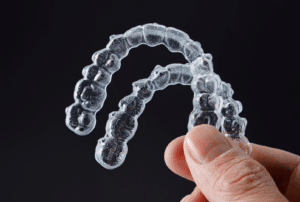
Retainers themselves are not a direct cause of receding gums. However, if retainers are not cleaned and maintained properly, they can trap bacteria and contribute to gum disease, which, in turn, can lead to gum recession. It’s important to follow your orthodontist’s instructions for retainer care and maintain good oral hygiene to prevent any issues.
Is an electric toothbrush better for receding gums?
An electric toothbrush can be beneficial for individuals with receding gums. These toothbrushes often have pressure sensors and timer features to ensure you brush gently and for the recommended duration. Additionally, some electric toothbrushes have specialised brush heads for sensitive gums, which can be helpful in preventing further gum recession.
What toothpaste should I use for receding gums?
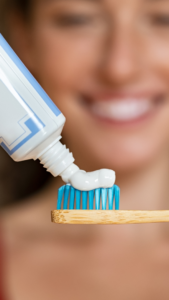
When choosing a toothpaste for receding gums, opt for one that is designed for sensitive teeth and gums. Look for toothpaste with fluoride, such as Colgate and Crest, to help strengthen tooth enamel and desensitising ingredients to reduce tooth sensitivity. It’s a good idea to consult with your dentist or dental hygienist for specific recommendations based on your condition.
Do receding gums cause bad breath?
Receding gums themselves may not directly cause bad breath, but they can create pockets where bacteria can thrive, leading to bad breath. Maintaining good oral hygiene and addressing the underlying gum issues can help alleviate bad breath associated with receding gums.
Are there any foods that I should avoid with receding gums?
Foods that are excessively hard, sticky, or sugary should be consumed in moderation if you have receding gums. These types of foods can put extra stress on your teeth and gums, potentially exacerbating the condition. It’s essential to maintain a balanced diet and avoid foods that may harm your oral health.
Can I get braces if my gums are receding?
In some cases, orthodontic treatment with braces can be compatible with receding gums. However, it’s crucial to consult with an orthodontist and a periodontist to assess your specific situation. They can work together to develop a treatment plan that addresses your orthodontic needs while also considering your gum health.
Can receding gums fix themselves?
In general, receding gums do not typically fix themselves. Without intervention, the condition may worsen over time. It’s essential to seek professional advice from a dentist or periodontist to determine the underlying causes and appropriate treatments to manage and potentially reverse the condition. Early intervention is key to preventing further gum recession.
Preserving your smile: The road to healthy gums
Understanding receding gums, their causes, symptoms, and the importance of seeking treatment is vital for maintaining optimal oral health. Whether through professional treatments, home remedies, or lifestyle changes, we hope the above tips can help to address and prevent gum recession.
If you have any further questions or concerns about your gum health, don’t hesitate to book an appointment with our dentists! During your consultation, our experienced dental professionals will assess your condition and create a personalised treatment plan to address your specific needs and concerns. Your gums play a crucial role in your overall well-being, and we are here to help you keep them healthy and beautiful!

